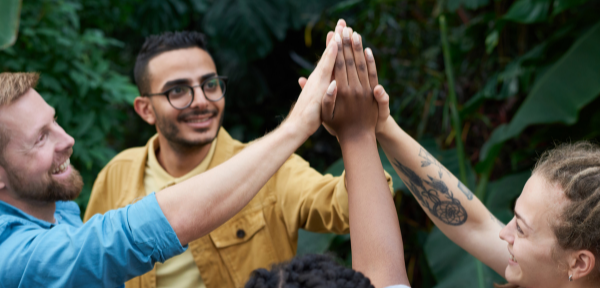Open Space: Restarting processes of social inclusion

Name of Practice: Open Space: Restarting processes of social inclusion
Organisation: Support-Girona
Description of Organisation: Support-Girona is an organization providing global and individualized support to persons with disabilities, with whom it has a legal link, promoting their social inclusion and Human Rights. Their mission is to support persons with intellectual disabilities, psychosocial disabilities or elderly persons experiencing some type of disability due to the ageing process to achieve social inclusion and exercise their rights.
Country: Girona, Spain (Catalonia)
Year of initiation: 2017
Funding: Primarily Support-Girona's own funds as well as private donations.
Link to UNCRPD: Article 15 - Freedom of torture or cruel, inhuman or degrading treatment or punishment Article 16 - Freedom from exploitation, violence and abuse, Article 17 - Protecting the integrity of the person, Article 19 – Living independently and being included in the community, Article 26 – Habilitation and rehabilitation, Article 28 – Adequate standard of living and social protection
Description of practice:
‘Open Space’ is a new community-based service and example of public-private cooperation between Support-Girona and the Public Mental Health Service Provider (IAS). ‘Open Space’ offers a coercion-free alternative that enables individuals with intellectual and psychosocial disabilities living in extreme social exclusion to receive necessary support (legal, social, health and leisure). This enables them to live independently and be included in the community by actively participating in the design of their own inclusion plan.
The workforce is a mixture of mental health nurses, social educators or social workers from the public mental health services and Support-Girona. The service offers a very flexible, needs-oriented, and non-institutional alternative to the rigid and over-regulated existing services which are often inaccessible to persons with disabilities in need of support.
Problem targeted:
The practice addresses problems faced by individuals who are repeatedly readmitted into clinical units due to conflicts with their social environment resulting from situations of extreme exclusion such as homelessness, lack of coverage of basic needs, and lack of social relations. Most of these individuals cannot benefit from other social and mental health services due to rigid admission and operating rules that pose an insurmountable barrier for them.
Solution offered:
‘Open Space’ offers these individuals voluntary access service, with only one rule related to violent behaviour, to establish a relationship based on trust with professionals. The service provides the person with a free access space where they may receive basic services like showers, food and clean clothes, whilst simultaneously connecting with professionals who can support them. The support provided helps the individuals to increase their self-awareness, increase personal routine management and develop a social network to make the first steps on a transition towards an independent living framework.
Impact generated by the practice:
In 2020, 85% of participants who used the ‘Open Space’ service did not subsequentially need acute or subacute mental health units, reducing the pressure (financial, human resources, etc.) on clinical resources and facilitating smoother transitions back into the community. Of the individuals using the service, only 16% had a stable home before partaking in it. Following the usage of the service, the number has risen to 72%. Hence, the service has shown its efficiency in changing detrimental patterns of the users.
Sustainability of the practice:
The reduction in the use of public services further incentivises governments to divert funding towards community-based services like ‘Open Space’, thus ensuring greater opportunities for expansion of the service (increased user base, mainstreaming the model). Further, the Catalan Government has recently launched a plan titled ‘PAICSAMAEC’ (Integral management of high complexity mental health and addiction situations) which highlights the need for the development of services based on the ‘Open Space’ experience.
Contact person:Ferran Blanco Ros, Project & Development Officer: ferran@supportgirona.cat
Additional links:

